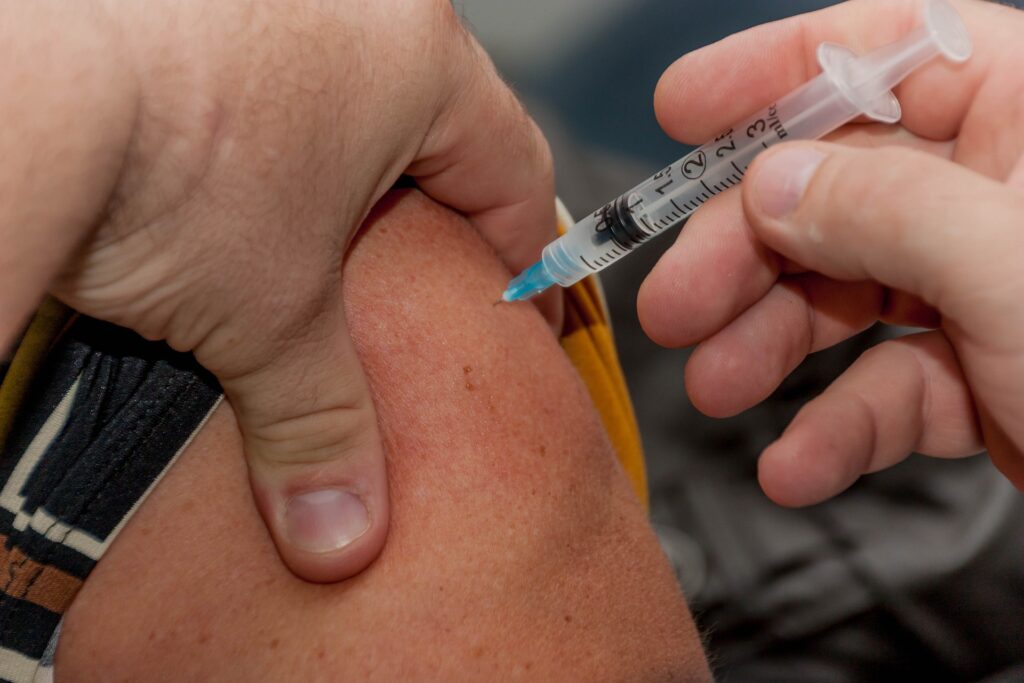Portugal has exceeded the target of 75% of the vaccination rate against influenza proposed by the World Health Organization (WHO), according to data from the Vacinometer, which point to a rate of 88,3% in people aged 65 years and over.
According to the final data from the Vacinometer 2021/2022, the study that monitors the pace of influenza vaccination, of the population included in this vaccination, 83,4% of people with chronic disease and 64,4% of professionals will have been immunized. healthcare providers in direct contact with patients.
The final data from the Vacinometer, which is promoted by the Portuguese Society of Pulmonology (SPP) and the Portuguese Association of General and Family Medicine (APMGF), with the support of the biopharmaceutical company Sanofi Pasteur, also indicate that 53,3% of the Portuguese were vaccinated aged between 60 and 64 years and about 60,2% of pregnant women.
The results released today also indicate that the group of pregnant women “has recorded a consistent increase in vaccination coverage since its inclusion in the free vaccine availability regime, in the 2020/2021 season”, when vaccination coverage increased to 53,6, 23,5% (was 2019% in 2020/XNUMX).
Those responsible for the Vacinómetro also point out the growth in vaccination in the 60 to 64-year-old group, since the last phase of the study (14 to 20 December 2021), with a value that went from about 38,7% to 53,3 .15%, also coinciding with the inclusion of this group in the free vaccine on December 2021, XNUMX.
Of people aged 65 or over, 8,5% will have been vaccinated for the first time, the same happening in 25,7% of the cases of people between 60 and 64 years of age, 8,1% of the chronically ill and 10,5% of health professionals.
“The final data for the 2021/2022 flu season make us satisfied that we have not only met (for the third consecutive year) but largely exceeded the WHO target for vaccination coverage of people aged 65 and over, thus ensuring their protection against the flu and beyond the flu, as this infection increases the risk of acute myocardial infarction and stroke”, highlights Nuno Jacinto, president of the Portuguese Association of General and Family Medicine (APMGF), quoted in a statement.
In the same note, the official underlines the increase in vaccination in people with chronic disease, “who are a risk group for viral infections such as the flu, since they can see their chronic disease uncontrolled or exacerbated”, as well as in the group of health professionals in direct contact with patients, “something very important since always, but even more so during the Covid-19 pandemic”, he said.
Also quoted in a statement, the president of the Portuguese Society of Pulmonology (SPP), António Morais, considered the values achieved in this flu season to be “excellent”, stressing “the clear reduction in the number of hospitalizations for flu”.
“They reveal that the extra effort of the Directorate-General for Health and the Ministry of Health to expand vaccination coverage, as well as the coordination of joint vaccination against influenza and Covid-19, has paid off,” he said.
The official argues that “learning for the next flu season” should be withdrawn from here, considering that this will require “an equal or greater vaccination coverage”, as “in the last two seasons the registration of flu cases was residual due to the measures implemented to face the Covid-19 pandemic, which allows us to foresee greater activity in the 2022/2023 season”.
In the two groups of chronic patients analyzed, 89% of people with diabetes will have been vaccinated, 5% of which for the first time, and 84,2% of people with cardiovascular diseases will have also received the flu vaccine, 10,7% for the first time. turn.
As for the motivations for vaccinating against influenza, the majority of the population included in the recommendations of the Directorate-General for Health were vaccinated on the recommendation of a doctor – 66,9% of people aged 65 and over; 65,8% of the chronically ill; 43,7% of people between 60 and 64 years of age and 63,7% of pregnant women.
The second most mentioned motivation was self-initiative, to be protected, which happened in 26,5% of people aged 65 or over, 21,7% of the chronically ill, 39,6% of people between 60 and 64 years old, 19,8% of pregnant women and 11,6% of health professionals.
The context of a work initiative was the reason given for vaccinating 82% of health professionals.
This year's vaccination campaign took place in descending order of age, through an SMS call for the simultaneous administration of the flu vaccine and against covid-19, or just for the flu vaccine (if they were not eligible for the Covid-19), which, according to the promoters of Vacinómetro, “aligned with other initiatives, may have contributed to an increase in vaccination coverage and prevention of complications beyond the flu”.
According to the recommendations of the Directorate-General for Health, the flu vaccine can be administered throughout the autumn/winter, preferably until the end of the calendar year.
The DGS standard, updated last December, indicates that flu vaccination “is strongly recommended for priority groups”, which include people aged 65 years and over, pregnant women, patients aged six months or more. with chronic pathologies or conditions such as diabetes, Chronic Obstructive Pulmonary Disease (COPD), cardiovascular disease, neuromuscular disease with compromised respiratory function, trisomy 21 and patients aged six months or more who are immunosuppressed by pharmacological or pathological means.
On the 15th of December, the free vaccination of the population aged between 60 and 64 years was also included.
Vaccination also covers some contexts defined by the DGS, such as residents in homes and residential and/or reception institutions, patients in continuous care, hospitalized patients with a chronic pathology and/or condition for which the vaccine is recommended and inmates in prisons. , in addition to health professionals and other care providers.
The Vacinometer, launched in 2009, allows monitoring, in real time, the rate of coverage of influenza vaccination in priority groups recommended by the DGS.



















Comments